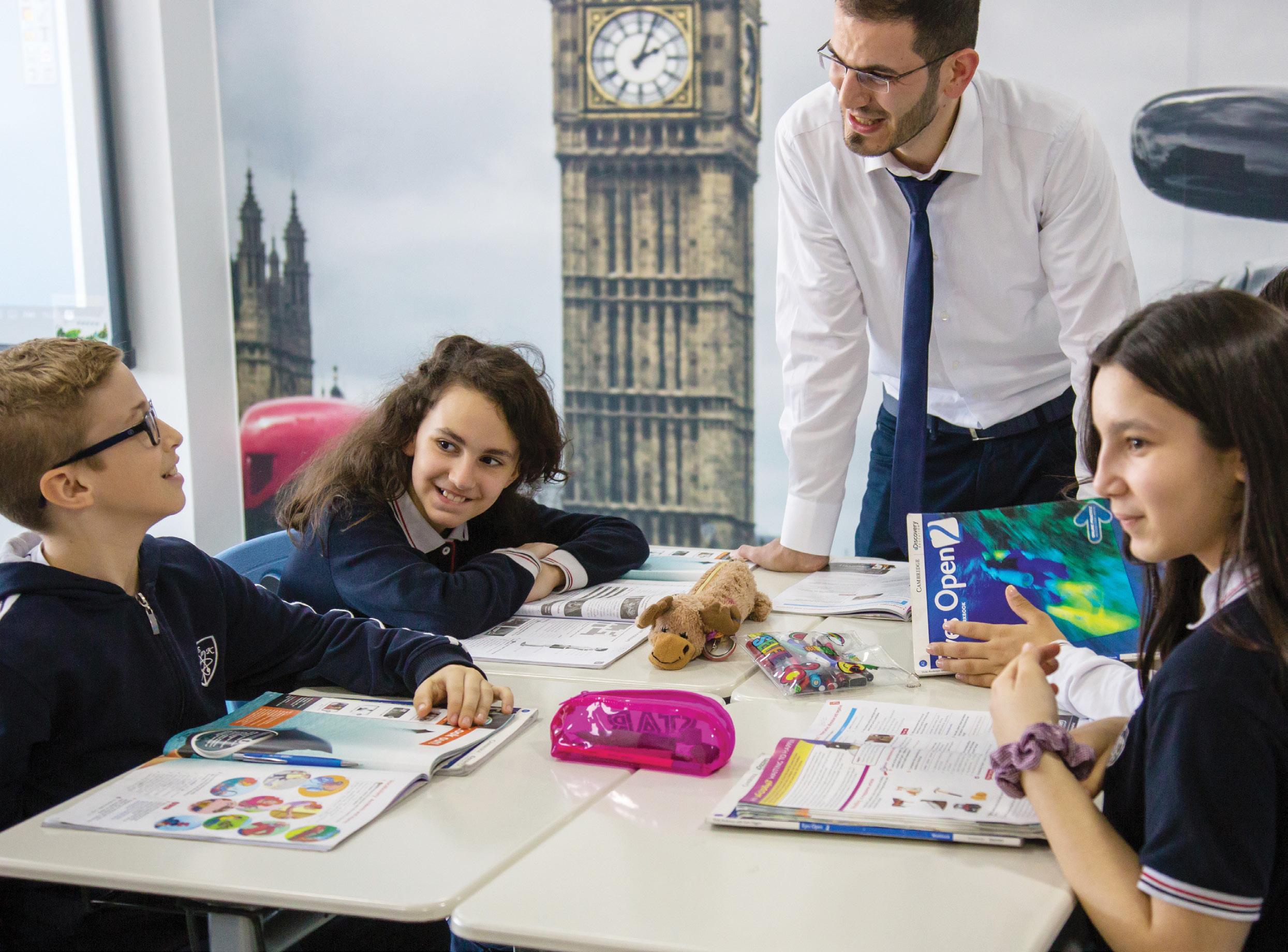
5 minute read
An interview with Herbert Putcha


Dr Herbert Puchta is a writer of course books and other ELT materials and a professional teacher trainer. For almost three decades, he has researched the practical application of cognitive psychology in EFL-teaching. Herbert has co-authored numerous textbooks and resource books including THiNK, English in Mind and MORE!
How did you start working in ELT? I was a teacher of young learners first, and then a teacher of teenagers. When I started teaching in Austria, the teaching materials were not very exciting – in those days it was all grammar translation! I had this vision of producing materials that would appeal to children and teenagers while simultaneously developing their ability to communicate. So, I began collaborating with similar-minded teachers and wrote my first course for lower-Secondary students in Austria. What has been your most memorable experience of working with teenagers? I’m not sure if there’s one experience I can point to, it’s rather a special quality that is specific to teaching teens. People often say that teens are difficult to teach, but if you manage to establish a classroom culture based on trust, they learn to appreciate this feeling of solidarity in the classroom. This helps students develop into responsible human beings and this is very gratifying for a teacher; being able to contribute to the development not only of students’ language but as well as their development as people.
What’s special about teaching teenagers? What’s special is the phase they go through; suddenly they’re not children anymore! They are becoming aware of needing to fit in with society and they’re asking themselves big questions, some of which can be quite threatening, like “Will I be successful in life?”, “Will I earn enough money?” “Will I be able to find a job?”
But the latest research shows it’s also a time of great opportunity. It’s a time when their adult identity starts forming, when they develop visions and dreams, and when they need adult understanding and guidance. This is what is great about being a teacher of teenagers; we have the opportunity to go beyond language teaching and give them this guidance. So, based on this, how do you write coursebooks for teenagers and what types of materials should teachers be using with their teenage students? If you ask teenagers what their main interests are, they will often talk about their favourite celebrities, like pop stars and sports personalities. The problem is that if we write texts about those heroes and heroines and put them in our coursebooks then by the time the book is published, the content is already out of date! We need to look at what is behind this teen admiration of celebrities. The educational philosopher Kieran Egan says that teenagers like to look up to people. They project big human qualities onto their heroes like love, genius, creativity, and courage. An alternative way of helping students connect with these big human qualities is using texts about “ordinary” people who show these human qualities. This is much better than texts about celebrities who may or may not have those characteristics.
Teens are also interested in anything that is far away from their own reality, so I like to use topics about other people, places and cultures. This helps them to gain insights into other ways of life, and understand that although people may look different, eat different food and live in different surroundings, that there is always something they can find in common. What tips have you got for getting students speaking? Students are often afraid of losing face in front of their classmates which makes them reluctant to speak in case they make a mistake. So, the first and probably most important requirement is to establish an atmosphere of trust. They need to understand that making mistakes is part of learning. A good foreign language learner is a risk-taker - they know that what they are going to say might be grammatically wrong, but the ultimate goal is to communicate what they want to say. So, it is really important to consider how we handle students’ errors.
The second thing is that we need to give them content that is interesting to talk about. Ben Goldstein once said that if teenagers are supposed to ask each other questions like “Do you like bananas?” then we can’t possibly expect them to be fully engaged. We need to take teenage students seriously and deal with topics that make them want to take part. One of the things that I have suggested to teachers is


that we should talk to teenage students about values. Helping them develop solid value systems is critical to their future lives. This doesn’t mean telling them how to behave, it means creating an environment which allows them to explore their ideas without judgement. Ultimately, I’m a firm believer in challenging students cognitively. If what we do with them is too simple and doesn’t require thinking then they will be bored. This is true for both topics and language. James Zull, the wellknown neurobiologist, says that success is progress towards a goal, and nothing succeeds like success. Students can only notice that they are making progress if they are challenged. This might not be welcome on the surface because teens might not want to work hard, but if we make it clear what we expect, and regularly assess their progress, then they should also see the benefits. We aren’t doing our students a favour if we spoon-feed them.









